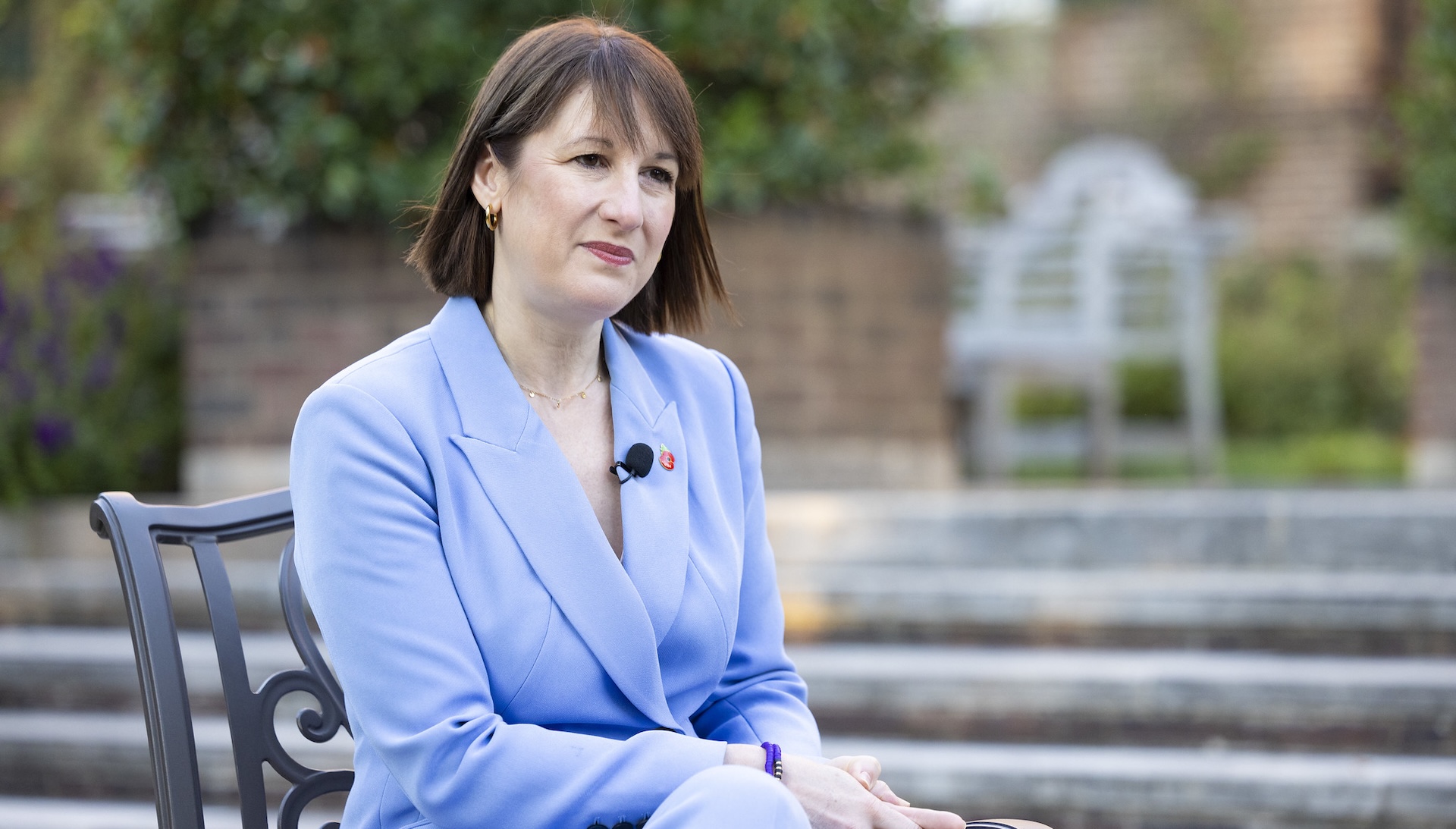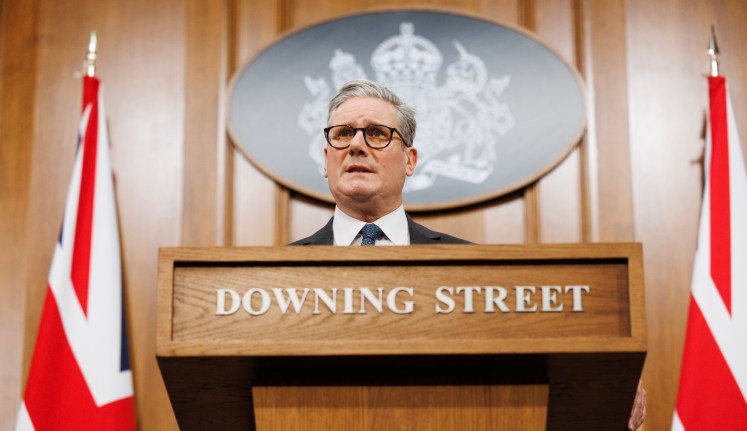Could there be benefit cuts announced in the autumn budget?
Charities have admitted they are “extremely nervous” about the government’s rhetoric around welfare spending in the run-up to the autumn budget.
The Telegraph reported that Labour is planning to slash £3bn from the welfare bill over the course of four years by tightening access to disability benefits.
The Conservatives launched plans to reform the work capability assessment, which assesses how much universal credit a person can get if they have a health condition, so that fewer people are eligible for support.
It is estimated that this will cut the number of people who are due to be put in the “highest tier of incapacity benefits” by more than 420,000 people, amounting to a loss of almost £5,000 per year per person.
It’s important to know that these plans will mostly impact new claimants but campaigners have said it will apply to existing claimants when their circumstances change, such as if they move house.
Labour is reportedly set to honour these plans, which could save the government £3bn by 2028/2029, although there has been no official announcement as yet. Reeves could announce these plans in the autumn budget, but they may not get a mention.
Ayla Ozmen, director of policy and campaigns at anti-poverty charity Z2K, said: “We’re extremely nervous, as are our clients. We’ve heard ominous talk of ‘difficult decisions on welfare’ for months. And recent mixed messaging about whether the government will proceed with the previous government’s dangerous plans to limit access to incapacity benefits has done nothing to allay our concerns.
“If these plans are taken forward, over 400,000 people will miss out on vital financial support and be put at risk of sanctions starting from next year. We really hope this doesn’t happen and that the government has recognised that such a move would be at odds with its own growth agenda, as well as its commitment to increasing opportunity.”
Richard Kramer, chief executive of national disability charity Sense, added: “We’re very concerned by reports suggesting that the government could continue with plans to cut out of work benefits for disabled people by tightening the work capability assessment in tomorrow’s budget. We want these plans to be scrapped. It won’t support people to get into work. It is geared to save money at the expense of disabled people.”
Sense is calling on the government to “instead ensure this budget delivers more financial support for disabled people to help them not just survive but thrive”. This includes “making benefit rates fairer so they reflect the real costs disabled people face, committing more national funding for social care and setting out tailored ways to help disabled people pay for their higher energy bills”.
The government is also yet to announce its plans for the personal independence payment (PIP) after the Conservatives proposed a series of changes which would have seen support slashed. Labour ministers have said they will take their “own approach” to social security, but it is unclear what that looks like.
Liz Kendall, work and pensions secretary, is set to publish her ‘Get Britain Working’ white paper later in autumn, which should entail more details about reforms which will impact benefit claimants.
James Taylor, director of strategy at disability equality charity Scope said: “Plans to take billions out of the pockets of disabled people during a cost of living crisis will be devastating. Ramping up restrictions on disabled people looking for work will only make their lives harder. They won’t help get more disabled people into work.
“The government needs to put forward a positive case for change. Life costs a lot more when you’re disabled, and prices are still rising. Cutting support to those who need it most will lead to even more disabled people living in poverty.”
Shelley Hopkinson, head of policy and influencing at Turn2us, added that “our social security system, like the NHS, is one of the foundations of our society”, which has the “potential to support people and our economy to thrive”.
“But over a decade of cuts, punitive policies and stigmatising narratives have dragged people deeper into poverty instead of lifting them out,” she said. “Rather than small tweaks and further cuts, we urge the government to listen to people’s experiences and take immediate action that can lift millions out of poverty.”
Local housing allowance, which determines how much housing benefit people get if they rent from a private landlord, could also be frozen if the government does not take action.
Helen Barnard, director of policy at Trussell, said: “We need the chancellor to clarify the government’s plans for disability benefits and local housing allowance and provide reassurance that they will not go ahead with the previous government’s planned cuts to both of these vital lifelines next year.”
How much will benefits go up in April 2025?
The autumn budget typically sees the chancellor confirm how much benefits will increase for the next financial year.
Benefits are expected to be raised by 1.7% from April 2025. This is because benefits are generally increased by the September’s rate of inflation, which was 1.7% – the lowest rate seen in three and a half years.
It will mean an increase of “just a few pounds” each month for most claimants, charities warned, as they called on the chancellor to raise universal credit so that people can afford the essentials they need to survive.
New research from the Joseph Rowntree Foundation ahead of the budget has found that working-age households who receive income-related support from the social security system are nearly £700 worse off on average than they were in 2019.
They will be £1,000 worse off on average by 2029, due in part because of housing costs rising faster than benefits. And inequality is set to get wider.
The richest third of the population will see their disposable incomes return to pre-pandemic levels by the end of the decade while the poorest third will see living standards fall in the next five years, unless action is taken, according to the Joseph Rowntree Foundation.
Katie Schmeucker, principal policy adviser at the Joseph Rowntree Foundation, said: “Tackling hardship is essential, not optional, as the foundation of a strong economy. There are difficult political choices but the government needs to choose to stand alongside those families who are having to make the heartbreaking choice of skipping meals so the children can eat. They cannot wait for promises of eventual economic growth before being offered relief.”
The charity is calling on the government to introduce a minimum floor in universal credit, below which payments cannot fall, including restricting deductions from universal credit payments. It would also like to see cuts to disability benefits scrapped, the household support fund extended, and the local housing allowance permanently linked to local rent levels.
Barnard added: “The government has made a positive start with action on workers’ and renters’ rights. Now, the most urgent priority for their first budget is to start tackling the inadequate levels of support within the social security system which is the single biggest factor driving people to the doors of food banks.”
Hopkinson also urged the government to increase universal credit to cover essential costs. “In the long term, we need a commitment to dismantle the stigma surrounding social security, building trust in a system that is compassionate and there for all of us when we need it,” she said.
What is the government planning around universal credit debt deductions in the autumn budget?
The government is believed to be planning changes to universal credit which would cap the current level of universal credit deductions, according to The Guardian.
This would reportedly would cap the level of monthly deductions to individuals’ universal credit standard allowance at 15%, rather than the current 25%, which would save more than one million of the UK’s poorest households an estimated £420 every year.
The Department for Work and Pensions (DWP) takes money back from around half of universal credit claimants to repay debts and correct errors, according to analysis from the New Economics Foundation.
The Big Issue has reported on the impact of universal credit deductions, which are said to be causing “poverty, evictions and mental and physical health problems”.
Capping universal credit deductions would be a welcome move among those in the anti-poverty sector, but they would like the government to go further and introduce a minimum income floor below which universal credit could not fall.
Barnard said: “We are looking for early action to introduce a protected minimum income floor to limit the amount of reductions that could be applied to a household’s universal credit.
“We know that deductions and caps in universal credit are pulling support even further below what’s needed to afford the essentials and this would ensure, for the first time, that there would be a real safety net below which no one could fall.”
Could the two-child limit on benefits be scrapped in the autumn budget?
The Labour government is clear that it wants to reduce child poverty, but it has not committed to scrapping the two-child limit on benefits.
Its ministerial taskforce published its ‘Tackling Child Poverty’ strategy last week which contained no mention of removing the two-child limit on benefits, despite research showing it could lift hundreds of thousands of children out of poverty and save the economy billions in the long term.
Pressure is building for the government to scrap the cap. More than 120 organisations, as part of the End Child Poverty Coalition, have signed a joint statement calling for Rachel Reeves to scrap the two-child limit on benefits.
“We call on the government to scrap the two-child limit in its first budget,” the coalition said. “We know that immediately scrapping the two-child limit is a necessary first step to begin to reduce the number of children in poverty across the UK today. Now is the time to act: children can’t wait.”
Could the winter fuel payments cuts be reversed in the autumn budget?
Labour ministers have remained firm in their decision to means-test the winter fuel payment, so that it is restricted to pensioners in receipt of pension credit and other means-tested benefits.
It means millions of pensioners will miss out on the payment of up to £300 to help with their heating bills this winter.
Charities, campaigners and politicians have repeatedly called on the government to reverse the winter fuel payment cuts, but the government has defended its decision.
“We have made that decision to mend public finances so everyone benefits in the long-term, including pensioners. And that is a difficult trade-off and there will be more to come,” Keir Starmer said.
It appears unlikely that the government will reverse its decision, but the chancellor could introduce measures which would mitigate the impact of the winter fuel payment cuts with increased support for pensioners through other means.
Do you have a story to tell or opinions to share about this? Get in touch and tell us more. Big Issue exists to give homeless and marginalised people the opportunity to earn an income. To support our work buy a copy of the magazine or get the app from the App Store or Google Play.
Big Issue is demanding an end to extreme poverty. Will you ask your MP to join us?









